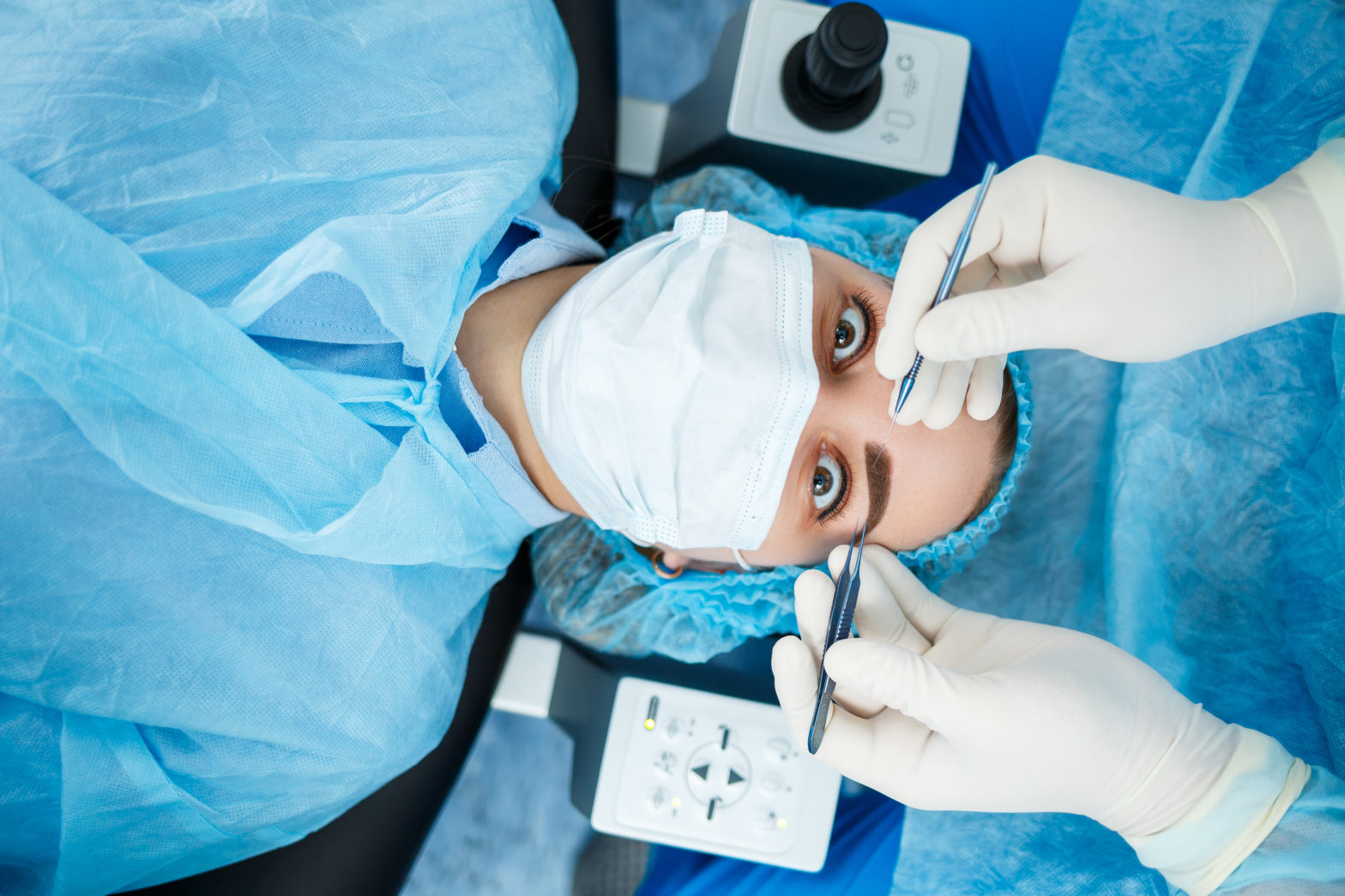Of late, cataract surgery has become the most common surgery performed on human body around the world. It gives gratifying results for both the patient and the cataract surgeon alike. Under rare circumstances, recovery after cataract surgery may get delayed and some patients may complain of cloudy vision after cataract surgery. In most cases, it is temporary and settles down once the offending reason is treated. Very rarely does some complication after cataract surgery or any pre-existing eye problem, lead to a permanent clouding of vision.
Aruna, a resident of Nerul, got cataract surgery done a month ago. Initially she enjoyed a great vision and then noticed that vision has reduced around 3-4 weeks after her surgery. She was referred to the Cataract Surgery centre at the Advanced Eye hospital and Institute in Sanpada for further evaluation. Her eye examination revealed that she had developed a small swelling on the retina. She was given treatment for that and she regained her vision clarity in 2 weeks.
There are many patients like Aruna who get cloudy vision after cataract surgery and most can be treated by timely diagnosis, proper treatment and care.
Below, I have listed some of the reasons which can account for the cloudy vision after cataract surgery:
- Residual eye power
Most common reason is some remaining power in the eye even after surgery. Most of the time, in case monofocal lens in implanted, a patients vision is adjusted for distance correction. Minor eye power is common after cataract surgery and there is no particular reason for that. Sometimes, the errors in the IOL (Intra Ocular Lens) power calculation, incorrect placement of lens inside the eye or corneal astigmatism (which requires special lenses called Toric lenses for correction) can result in unexpected eye power after the cataract surgery. This in turns can lead to vision blurriness or hazy vision till glasses are prescribed. But this is not considered a major issue since a simple “glass prescription” solves the issue and vision clarity is restored. - Swelling of the cornea
Swelling of the outer transparent layer of the eye called cornea is not very common after cataract surgery. Corneal swelling leading to corneal clouding is usually temporary and settles in a few days. Most of the time the reason for this could be a hard cataract which during the cataract surgery needed higher ultrasound energy or in very rare cases the reason is some surgical complication causing injury to cornea. In even rarer cases, corneal swelling can be permanent and most of these cases are due to pre-existing corneal diseases like Fuchs endothelial dystrophy, healed viral keratitis etc. Some of these cases may settle down in a 1-2 months and some of them may need cornea transplantation later. In cases with corneal swelling after the cataract surgery care is taken to reduce the eye pressure and keep the eye inflammation under control. Clouding of the vision settles down once the corneal cloudiness and swelling subsides. - Inflammation (swelling) inside the eye
Inflammation inside the eye after cataract surgery can happen due to many reasons. One of the commonest reasons being uveitic cataract, in this case the eye has had episodes of inflammation in the past and it gets active again after the surgery. The others could be due to residual lens matter or toxic response to the medicines used during the surgery. The inflammation inside the eye needs to be controlled with the help of frequent anti-inflammatory eye drops. Vision cloudiness improves as the inflammation of eye is brought under control. - Swelling on the retina
This is a slightly delayed problem also called CME (Cystoid Macular Edema). In this condition fluid builds up between layers of the retina at the back of the eye and it usually happens 3-4 weeks after the cataract surgery. Most of these patients had normal vision before and then notice mild haziness in the operated eye. It happens more frequently in diabetics. It is mostly treated with eye drops and very rarely may require an injection in the eye to control the swelling.
Infection in the eye ( Endophthalmitis).
This is one of the rarest and the most dreaded complication after cataract surgery. In most cases it tends to increase and cause vision cloudiness within a week after the cataract surgery. This is treated as an emergency and often requires antibiotic injections inside the eye. Very rarely a surgery called vitrectomy may be needed to reduce the infection load in the eye. Most cases if detected early can be treated. Rarely a patient may lose all vision if not detected or treated quickly. - Posterior capsule plaque
Capsule is the part of the original lens on which IOL is made to settle down inside the eye. Sometimes central part of capsule is thick in the center and this interferes with vision. In those cases laser called YAG laser can be done 1 month after the cataract surgery. In other cases the capsule which was normal and transparent earlier can become thick few years after the cataract surgery. At that stage also the patient experiences cloudiness of the vision. - Dry eye
Dry eye is a very common problem especially in older individuals and in post-menopausal women. Most of the time pre-existing eye dryness tends to increase after the cataract surgery. The increase is usually secondary to the surgical procedure itself and post operative medicines. Most patients with dry eye notice intermittent clouding of the vision. This is easily controllable with the use of lubricating eye drops and other treatments for dry eye depending on the cause and severity of it.
Pre-existing retinal or optic Nerve problem.
Often for patients who have advanced cataract, it is very difficult to assess the health of the retina and the optic nerve. Ultrasound B-scans can help know the anatomical integrity of the retina and the nerves but does not help in understanding the functional potential of both. In some less than total cataracts, potential acuity meter test can help in a crude assessment of the vision potential but in near total cataracts, even these tests are not helpful.
In any event, it is very important to report any blurriness after the cataract surgery, especially if the cloudy vision is constant and sudden. Most cases of cloudy vision after cataract surgery can be managed if detected at the right time. Also there is no reason to panic and we all need to understand that the healing response of the eye can vary from person to person. It is therefore very important to avoid comparing surgeries with your friends or neighbors. A detailed discussion with your cataract surgeon can help you not only understand the problem but also the management of the same. Prior to the cataract surgery it is a good idea to discuss the risks, recovery period, and possible complications post cataract surgery with your cataract surgeon. This in addition to mentally preparing yourself will also help you understand what you can expect after cataract surgery.









